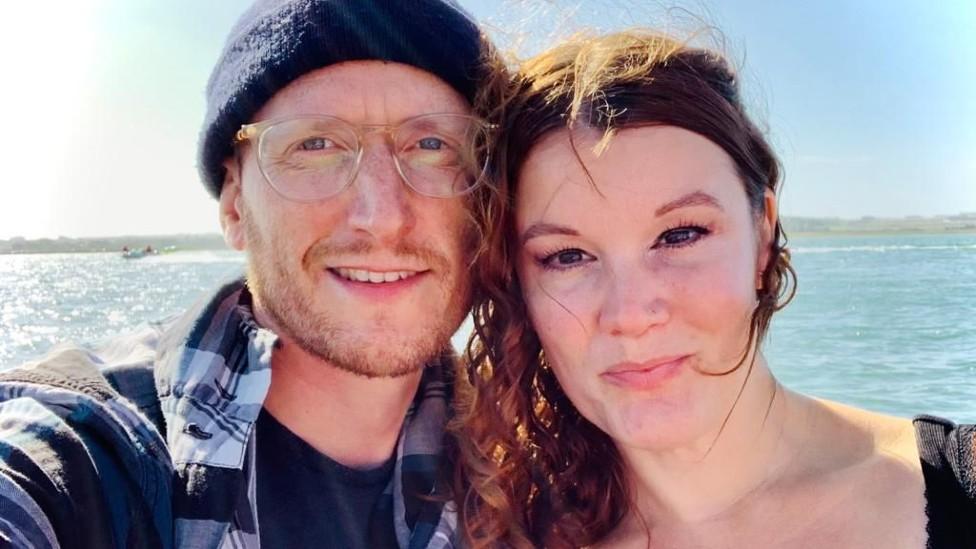Coronavirus: Losing a baby during the pandemic
- Published
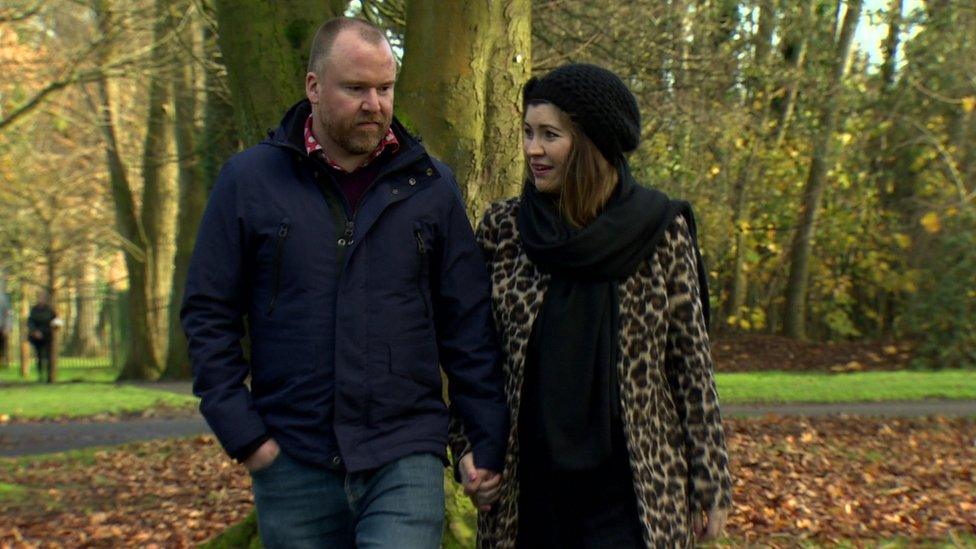
Andrew Castle and Cheryl Malone found out their pregnancy was not viable at a 10-week scan
Suffering a miscarriage or stillbirth in normal times is often a difficult, isolating and lonely experience.
Add in Covid-19 and its restrictions, the emotional impact is exacerbated - both inside and outside the hospital.
In July this year there was an easing of Covid-19 restrictions for antenatal care. In Northern Ireland birth partners are currently allowed to accompany women for pregnancy scans and fetal medicine appointments.
However for Cheryl Malone and her partner Andrew Castle this was not the case.
It was the beginning of June and they were sitting in their car outside a GP's surgery, after calling ahead to ask to speak to doctor.
The pain of losing a baby during the pandemic
They needed advice - an ultrasound at a private clinic had just discovered their 10-week pregnancy was not viable.
Devastated, Cheryl and Andrew sat in the car waiting for a call.
It was a male doctor who rang Cheryl back.
His advice: "Away home, take two ibuprofen - it will just be like a heavy period."
They took the doctor's advice. What followed was not like a heavy period.
Intense contractions and severe pain
By the third day, Cheryl "was in the full throws of labour".
"I had a tens machine, I was bouncing on a stability ball, no pain relief was working," she told BBC News NI.
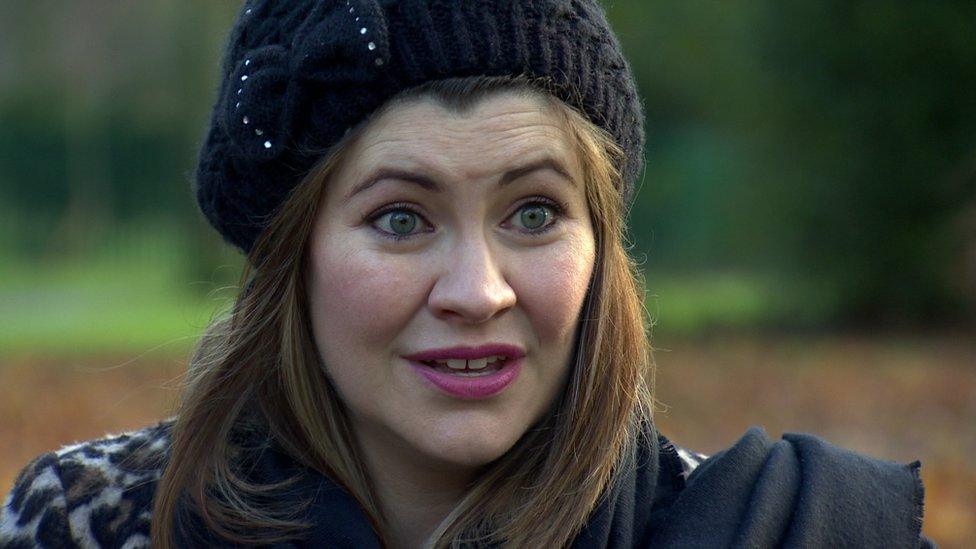
Cherly went through four days of labour at home
On day four they went to the Early Pregnancy Unit at the Royal Jubilee Maternity Hospital. Due to the restrictions, Cheryl had to go in alone.
What happened next, Cheryl believes, should never have happened.
After being triaged, she was told to return home again. Cheryl says she pleaded with the midwife not to send her home, saying she could not cope with another night.
She was offered another appointment in two days.
There was another night of intense contractions and severe pain.
Cheryl miscarried at home.
Her partner Andrew says he had a "deep rooted feeling" throughout that what was happening just wasn't right.
Cheryl believes they were left to fend for themselves - without any information or advice. She says the whole experience has left her traumatised.
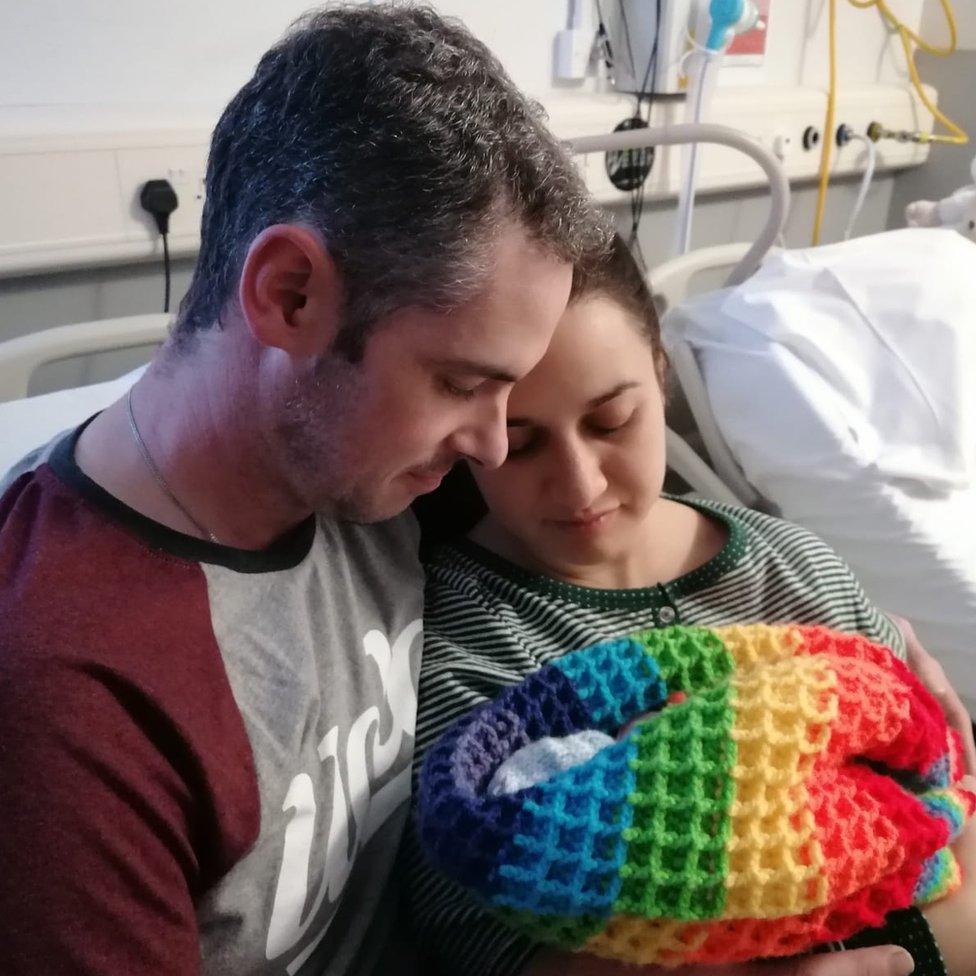
David and Heather Johnston delivered their son at the Royal Jubilee Maternity Hospital's bereavement suite
Heather and David Johnston from Lisburn also got news in spring that a baby was on the way.
The Covid-19 restrictions affected them at an early stage.
Heather attended her 12-week scan without her husband - despite having lost two previous pregnancies.
Grief
David sat in the car with their three children waiting for news. Heather remembers ringing David and telling him that something wasn't right.
Going back to the car, she says, was "so very difficult". The children, realising that something was wrong, got out of the car and gave them both a hug.
For David it was not knowing what the doctors had told Heather that was the most difficult.
He said Heather was "numb" and all he wanted to know was if the problem with the pregnancy "could be fixed".
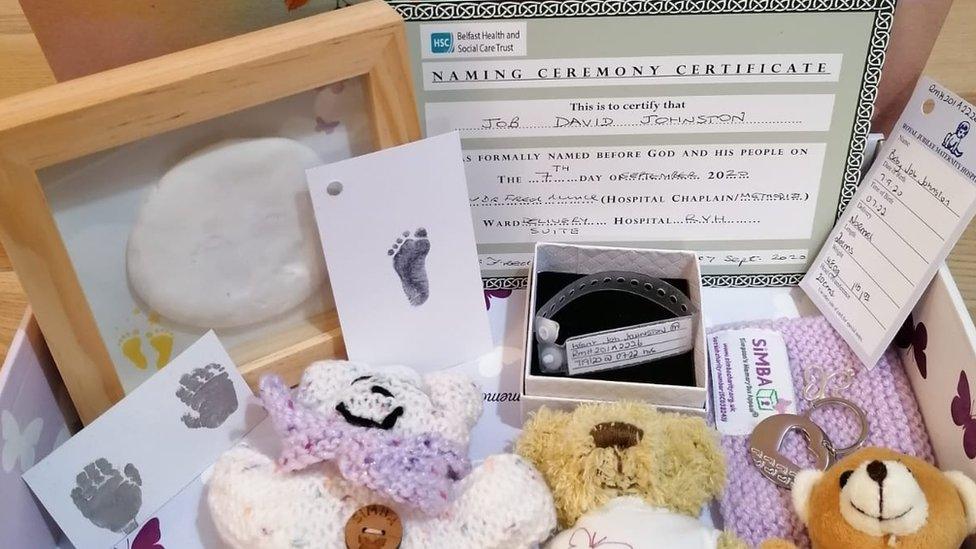
Midwives helped Heather with a naming ceremony and a memory box
Three days later doctors confirmed a life-limiting fetal anomaly.
Both Christians, the couple declined a termination and decided to continue with the pregnancy as long as there was a heartbeat.
They used the time to make memories, go on holiday and explain to their children what was likely to happen in the coming months.
At 23 and half weeks, Heather delivered baby Job at the Royal Jubilee Maternity Hospital's bereavement suite. David was allowed to attend but there were no other visitors.
The funeral was just close family. Heather says "not being able to hug people was incredibly difficult".
Heather got great comfort from the midwives who helped with a naming ceremony and a memory box.
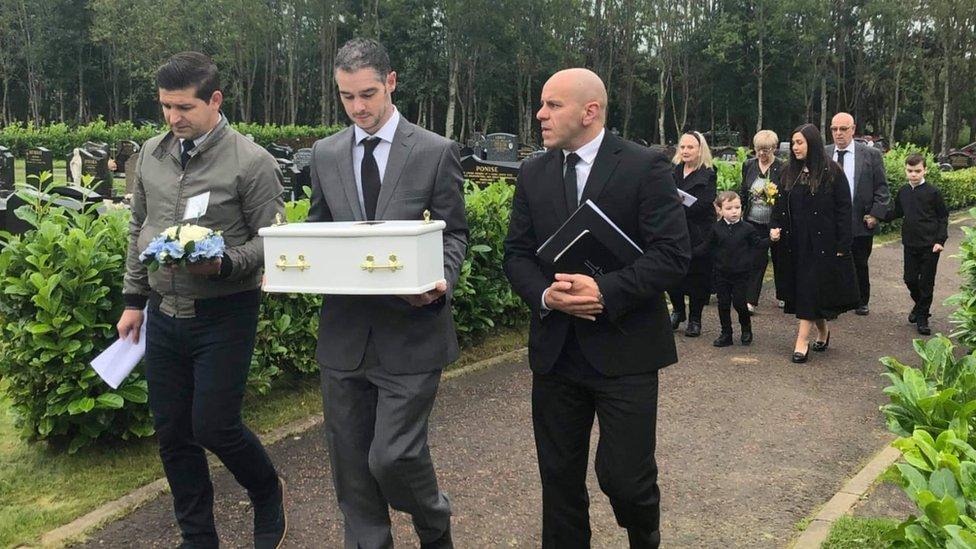
Only close family could attend baby Job's funeral due to Covid-19 restrictions
But there was one midwife that stood above the rest. Barbara Gergett, the Royal Jubilee Maternity Hospital's specialist bereavement midwife, worked and continues to work with both Heather and Cheryl.
For both women it is simple - Barbara understands their grief and how much Covid-19 has intensified those feelings. For Heather, Barbara attended appointments when her husband David was not allowed to go and continues to provide support.
Cheryl is expecting again. She describes Barbara as the "light" that came out of a very negative experience.
Barbara Gergett says the Royal Jubilee Maternity Hospital realises that for some families the spring restrictions were "very difficult," but believes that as things have progressed and more risk assessments completed, the hospital is in "a better place now".
If you're affected by the issues in this video, then help and support or wider information is available via BBC Action Line.
- Published25 November 2020
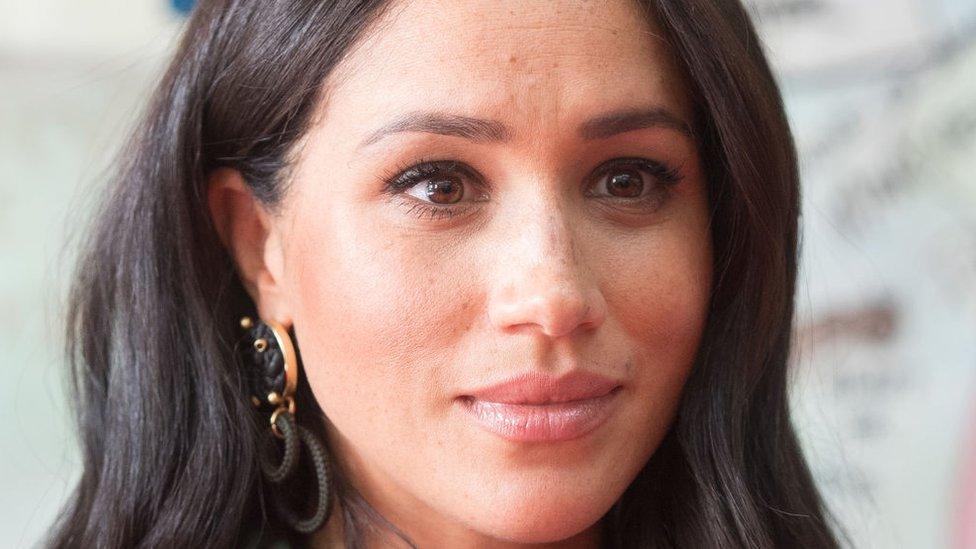
- Published4 September 2020
